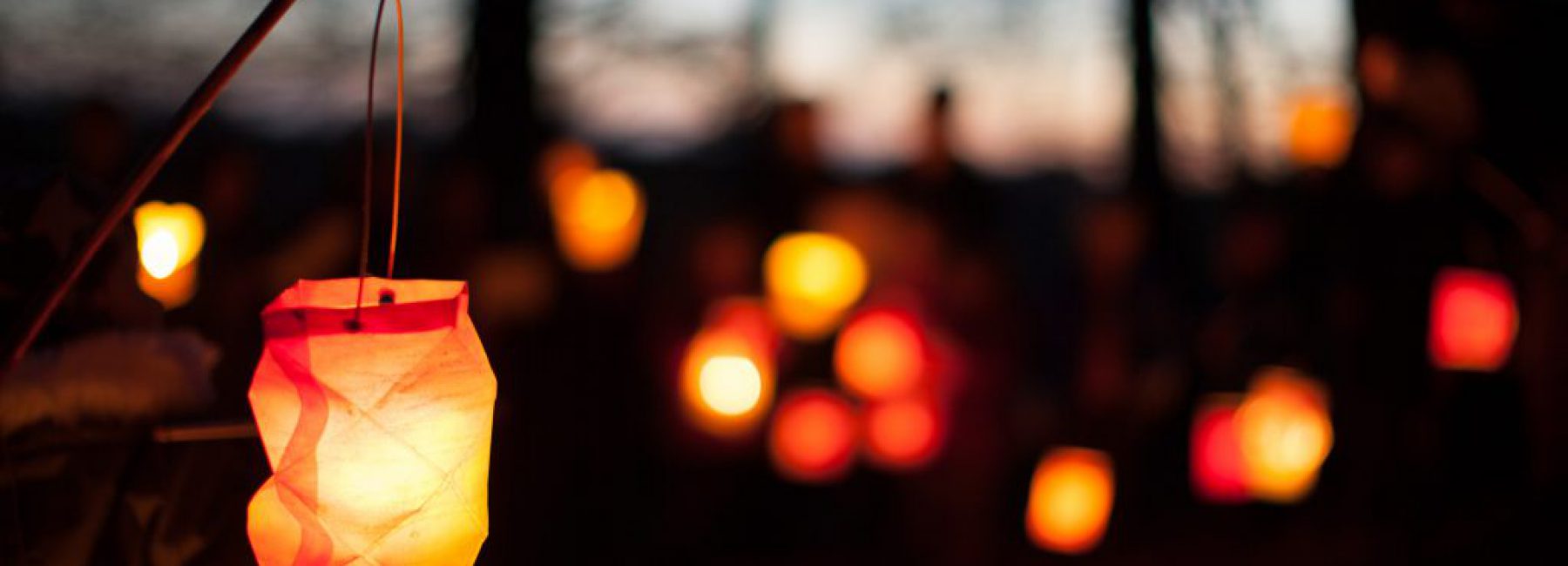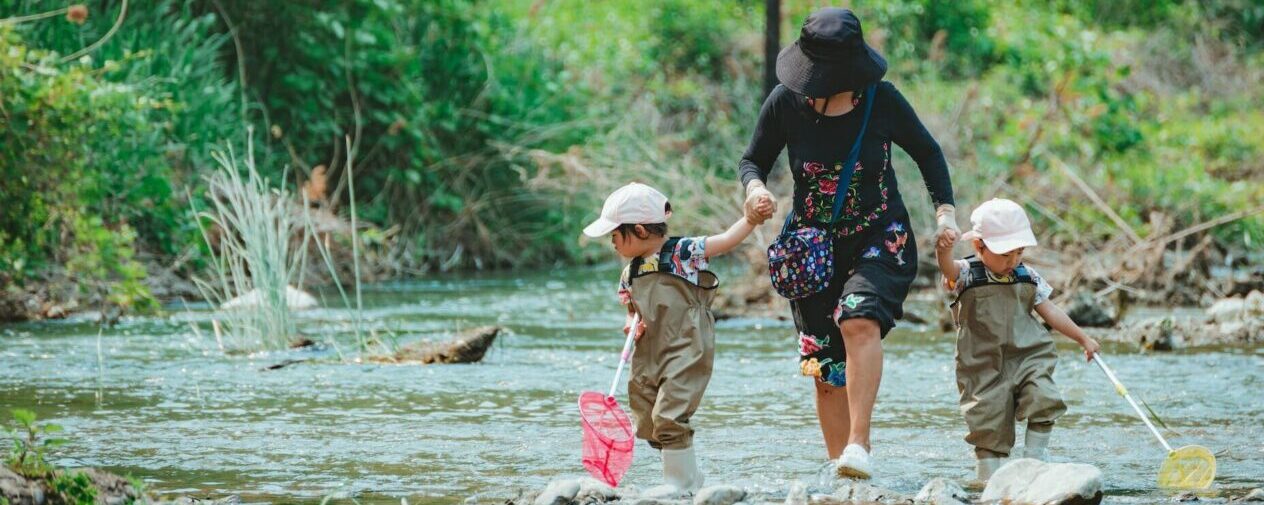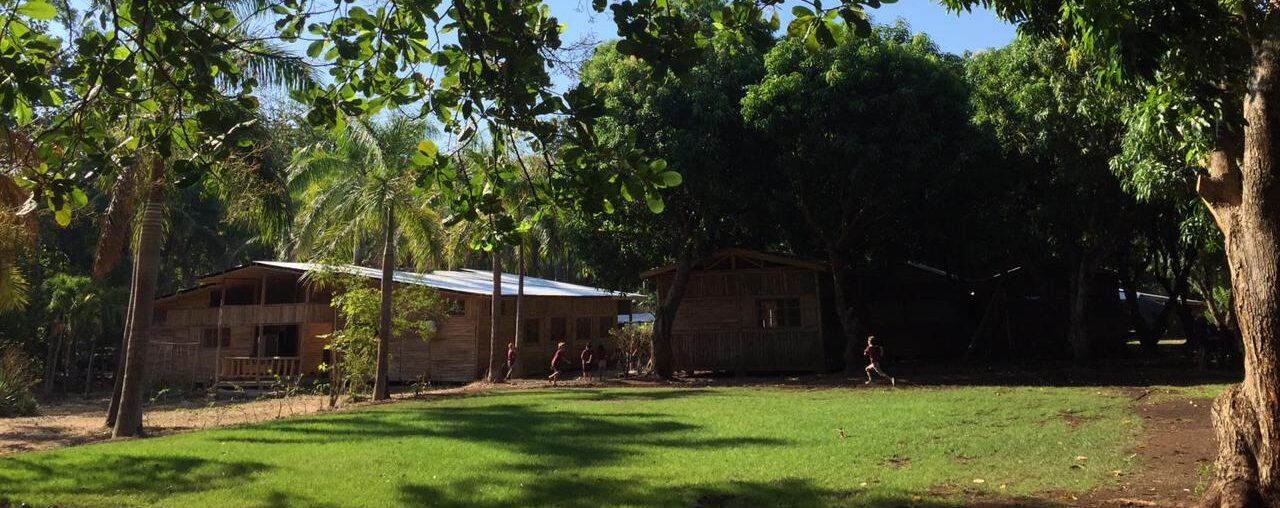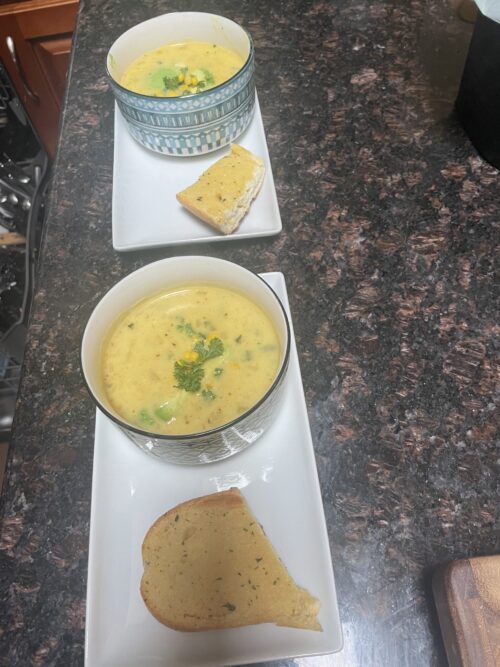Growing up
Soup and Bread go well together just about anytime of the year. I grew up in a very hot climate. However, for lunch we pretty much had soup and bread daily as an appetizer for lunch. I remember the amazing aroma and the delicious flavors of the dozens of types of soup our grandma, Hilda, and nanny, Sabina, made at home. During my childhood, my single mom although a wonderful mom, worked a regular schedule so she was not home during the day. In spite of that, my siblings and I were blessed to have grandma at home, in the first part of our childhood. And also our nanny, Sabina, was with us during all our childhood and adolescence. This was great help for my mom raising four young children and of course with generally a couple of pets to take care of too.
Summer Lessons
Both, grandma Hilda and Sabina, were amazing cooks so I learned some culinary tips at an early age. Sabina had a special influence in this skill early in my life. She lived in our house for a long time during our childhood. Therefore, she also had the task to cook as she was a fantastic cook. She had not learned to read but she was very smart and talented.
In the Summer time, my siblings and I had cooking lessons taught by Sabi, as we liked to called her. Sabi used to teach me and my siblings, from my mom’s direction, the different recipes which she knew by heart. These lessons may have been a way to keep us busy or to simply show us to be useful, I guess. In the beginning, I dreaded them but soon I learned to treasure them as Sabi had a great sense of humor. Her cheerful and sassy personality always entertained. Although she was a good teacher and a lot of fun, she would never let us goof around or get distracted. She could be very strict and have a strong sense of command.
Learning from the basics
In these summer cooking lessons, the main skill that we learned was how to make any dish completely from scratch. So if we were making a soup, that would mean that if the soup required peanut sauce, we needed to start from getting the peanuts from the shell. We would sit down on the porch of the backyard and start de-shelling the peanuts, then the next step was to toast them on the stove and then peel them. The final step was to crush them and finally mix them with milk or any required liquid for the sauce.
The process was a bit cumbersome but she made it seem so smooth and quick. I remember thinking I want to always cook like this, so naturally and with the freshest ingredients. Her food was amazing. As a Waldorf teacher and mom, growing up with this concept of making something with fine, natural ingredients and from the beginning of the process, without shortcuts, made me appreciate Waldorf Education in a special way.
Putting skill to practice
However, It was really in my adult years that I put them to practice, almost by necessity. In any case, it is a treat to have all these recipes stored in a special place in my memory. Every time I have made these recipes for or with my children or class, I go back to those sunny hot days in the kitchen in a remote place in the tropics. In fact, I just made this great soup this week (which was my favorite one growing up). It was a soup we had in the menu at Guanacaste Waldorf Inspired School in Costa Rica because it was a kids’ favorite.
So I hope you can make it with your children at home or with your class. It is a simple, vegetarian, lactose free version. I am sharing it today celebrating Cultures Day around the Americas. The soup in Spanish is “Locro de Papa” that goes well with “Pan de Choclo”, so celebrating the Ecuadorian culture and the American Culture. Locro means stew in Quechua -“ruqru”. In English it would be Potato Soup/Stew and Corn Bread. Enjoy!
Potato Soup or Locro de Papa:
Corn Bread or Pan de Choclo:






